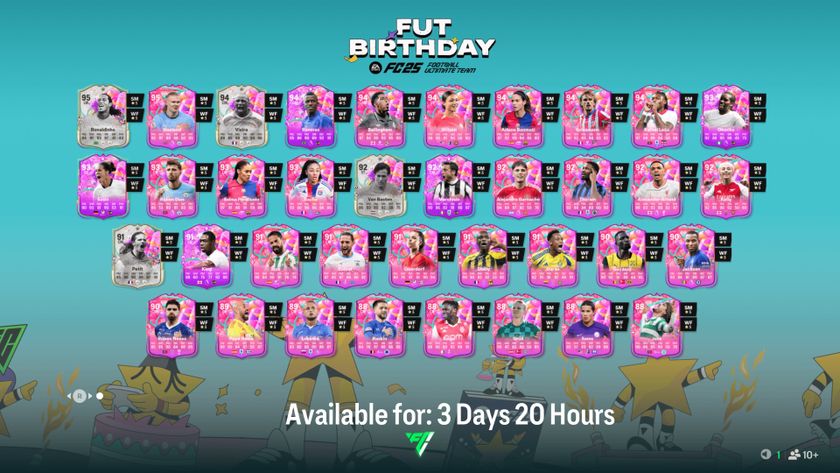9 big questions E3 2016 must answer
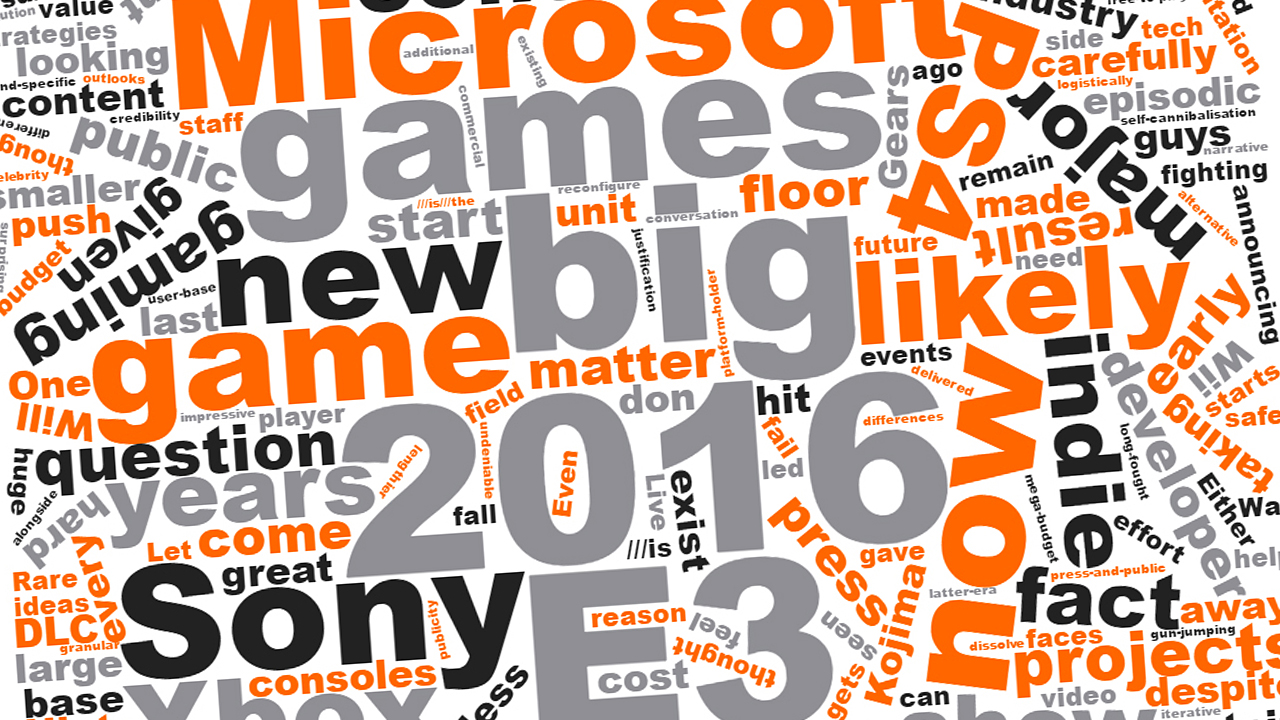
E3 2016 will yield the usual razzmatazz, hype and big game announcements, but what does the show really mean for gaming in the immediate, and long-term, future? What will it signal for the future of VR? Or the health of AAA games? Where does indie fit into such a garish environment… and how might iterative hardware, like PS Neo, disrupt the traditional console cycle? This year, more than any in recent memory, very big questions are going to be raised, and – just maybe – some very big answers given.
There are implications for everything, from the console war, to the hardware we use, even to the very nature of how we play games. Let's take a look and see how these big issues might play out next week.
1) Does E3 still matter?
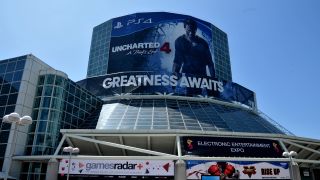
Perhaps the biggest question raised by this year’s E3 is not about the games, but about E3 itself. It’s long been a fashionable press standpoint to ask whether the show itself remains relevant in the age of digital broadcasting and bespoke audience communication, but 2016 seems to be the year that the question might finally become a point of undeniable importance. It’s no longer just about publishers having alternative possibilities, or the mass scrum for coverage resulting in affair degree of industry self-cannibalisation. This year, a significant number of huge publishers are bowing out, seeming to answer the question with rather unambiguous actions.
But are they? There’s no denying that the loss of companies such as EA, Activision, Disney and Wargaming from the show floor sounds perturbing, implying that for some, the cost of physical booth space just isn’t deemed worth the bother when E3 remains largely closed to the buying public. But at the same time, EA hasn’t lost sight of the event’s importance as an announcing platform, running its own event just before the show proper starts. Clearly, the relevance of E3 as a future-looking, cultural focusing point is still there. It’s just that the ways that publishers want to communicate to their communities (and the press) is changing, more granular, direct communication and focused, brand-specific events taking precedence.
So it’s notable that this year there’s an additional, public-access event going on in parallel. E3 Live is a fan expo, sitting alongside the main press event, full of hands-on opportunities, developer access, tech demos and live entertainment. At this stage it’s an experiment, but the shape of its success is likely to mould E3 rather a great deal in the years to come. If E3 Live proves a hit, and the desired word-of-mouth publicity lights the up the community in the way that publishers no-doubt wish, then it’s likely to grow, and will possibly result in a further shrinking of the press-only E3 show floor. Alternatively, the two could co-exist, or even combine, if E3 is willing to reconfigure itself in a manner akin to the press-and-public mingling Gamescom. Either way though, however much its show floor diminishes or not, it’s likely that E3 ‘proper’ will remain the place for major announcements. It might no longer be the best way to interact with the masses, but in terms of broad-strokes hype drops, it’s still a hell of a big spotlight.
2) What does AAA mean in 2016?

Does AAA still exist? And if so, what does it mean these days? The answers used to be obvious. AAA used to denote a certain level of blockbuster quality, a certain degree of ‘mark the date in your diary’ importance for publisher and player alike. It used to be the field that delivered all the fresh, exciting, genre-changing ideas, presented in an ultra-polished, immensely shiny package. But it isn’t really that any more.
Now it’s often more about hype, about publishers trying to beat the idea of importance into an audience with marketing. Now, every relatively sizable game from a big company has to make out like it’s the most significant release of the year, and that does no-one any favours. The term’s meaning has lately also been diluted by multiple sub-par releases from big-name franchises. Assassin’s Creed has had an awful time of it over recent years, and is now rebooting as a result. The multiplayer half of Halo’s Master Chief Collection didn’t work for a considerable period after launch. Halo 5 was a misguided misfire, led by ‘me too’ imitation rather than innovation. Meanwhile Overwatch, a cartoony, multiplayer-only shooter, has just captured hearts and minds worldwide, on every format. A deliberately unfashionable game called Doom has – despite early misgivings in some quarters – exploded as possibly the year’s giddiest critical and commercial success to date.
Sign up to the 12DOVE Newsletter
Weekly digests, tales from the communities you love, and more
So what the hell is AAA in 2016, and how will E3 reflect it? Will the above shifts see the start of a return to the kind of big-budget, creative bravado that used to make the area exciting? Or will ‘safe’ sequels and HD remakes remain the heavily-pushed big hitters, despite their clearly no longer being as safe as they were a few years ago? Or will we see – and this might be most interesting possibility of all – the term and associated behaviours start to dissolve by way of a mutual recognition of its arbitrary nature, games simply presented as what they are, and sold on their own merits?
3) Is there still a place for the big budget auteur?

On a related note, we’ve seen big changes over the last few years in terms of developer culture too. Celebrity game developers and auteur-driven releases are nothing like as rife as they were in the big budget market. Hideo Kojima’s long run as gaming’s most eccentric, AAA shot-caller stalled as spectacularly as it lasted, by way of the Metal Gear Solid director’s hasty departure from Konami, and what looked very much like a scorched earth policy on the publisher’s side of things. Gears of War mouthpiece Cliff Bleszinski has gone indie, and PC-only. BioShock boss Ken Levine shuttered his studio after Infinite and is now working on smaller narrative games and a Twilight Zone project. Tim Schafer has long now dwelled in the realm of Kickstarter, shifting his distinctive voice away from major publishers and relying directly on his audience for support. And obviously Peter Molyneux is staying right the hell out of everything these days.
It seems that the days of the AAA auteur might now be over. Even Shigeru Miyamoto is taking more of an overseer role at Nintendo of late. Will anyone step up as a new, unique voice steering a major new project? It seems unlikely. Blockbuster gaming is a huge team effort, and on projects of that scale (often with hundreds on staff), artistic snowflakes can hinder as much as help. And besides, social media has ensured that the role of video game figurehead has long-since transitioned from developer to Community Manager at this point.
We’ll still get unique games spearheaded by unique, vocal creators, of course, but they’ll likely be smaller projects where That Sort of Thing is logistically more feasible. If we see anything of the new Kojima Productions’ first game – likely at the Sony conference – then it may be the exception, by way of enthusiastic first-party publishing if nothing else. But the big guys overall are likely to value smooth development over the double-edged sword of star power from this point on. Don’t expect to see many AAA rockstars emerge this year.
4) How are we going to play (and pay for) games in the future?

First it was (a failed attempt at) episodic content. Then it was DLC. Then it was (a much more successful attempt at) episodic content. Then free-to-play and microtransactions. Then it was season passes. Then subscription systems. But what’s it going to be this year? If a new retail model does rise from E3 2016, then a quick skim of the above strongly hints at what its theme will be. Long-term engagement and guaranteed, regular payments.
What we see now is the evolution of the industry’s long-fought battle against the losses made to the pre-owned market. After a few early, ill thought-out, abortive attempts at incentivising buying new – remember in-box DLC code bribes? – the proliferation of digital delivery, and some smarter thinking about how to make more money out of an audience without pissing it off, have led us to the likes of PSPlus, Games with Gold, and more thoughtfully realised long-term game experiences. We have open-ended hobbyist games such as Destiny and the Division, and piecemeal, multi-season affairs like Telltale’s narrative extravaganzas and Microsoft’s treatment of Killer Instinct. Even notorious DLC-pedlar Capcom designed Street Fighter 5 as a single, evolving platform, and Hitman’s episodic structure is serving both its deep, iterative gameplay and long-term player engagement really rather well.
If there’s any obvious next step to be expected this year, it’s an increase in the number of publisher-specific subscription models. EA has already followed Sony and Microsoft, and it’s surely only a matter of time before others do as well. We might even seen the relatively maligned, halfway house of season passes evolve beyond being expensive DLC packages and lead into optional, game-specific subscriptions for the more long-term prospects, perhaps with more traditionally standalone games developing lengthier content strategies to match. Though given the subscription model’s problems in the traditional MMO field, such a shift would have to be handled carefully.
5) Just what is Nintendo’s place in it all?
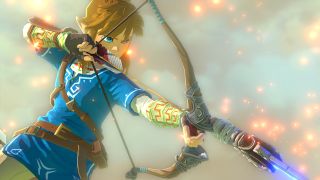
Nintendo is this year’s most inscrutable E3 story, but then when isn’t it? Coming off the back of an unambiguously tanked console in the Wii U, Nintendo might be – in terms of reputation and perceived mainstream relevance – in the worst place it’s even been. Financially and creatively though, not so much. Ninty still has massive money reserves from the 3DS, Wii, and the ever-raging, cash-spewing beast of Pokemon. And at its best, it remains the most vibrant creative powerhouse in game development. The question is, how is the video game Pixar going to come out of the corner this time, and how will that affect everyone else?
A few weeks ago, we thought we knew the answer. We thought that answer was ‘New console, innovative blend of home gaming and handheld, unification of development resources, and less reliance on third-party games’. But now Nintendo isn’t making much of an appearance at E3. Only the new Zelda is going to be playable on the show floor, and the company is even dropping its traditional Nintendo Direct presentation in favour of a few smaller, Pokemon-focused streams. But that doesn’t mean that Nintendo isn’t going to be part of the conversation. Quite the opposite, in fact. That enigmatic absence of Ninty’s big reveal is going to really rather conspicuous. In fact the anticipation it generates might well, ironically, put Nintendo in a lot of people’s thoughts.
Because Nintendo is more than capable of major disruption, and everyone else knows it. So how do you respond to the potential of an impending Ninty shake-up when you don’t know what you’re reacting to? It will be interesting to see if the other big two present themselves any differently this year as a result. Indeed, with the rumour of incremental hardware upgrades coming for both the PS4 and Xbox One proving highly divisive – if not straight unwelcome – there could be an early PR win to be had for Nintendo if that Zelda demo (which represents the first major NX game, despite the fact that it will be demoed on the Wii U) is a hit. It’s highly doubtful that Nintendo will make significant ground at this E3, but the seeds of a swing in goodwill might well be sown, albeit rather quietly. Either way, the industry at large will be watching it carefully.
6) What the hell is going to happen with the current console war?

After a decidedly shaky start for the Xbox One, Microsoft and Sony are both operating rather healthily now. Latest estimates put the PS4 well out ahead in terms of sales figures, but it's worth noting that Xbox sales are actually very good in their own right, regardless of comparison. And in terms of ideologies, both platforms are now in a rather comfortable, confident place. Where once it was confused TV box vs. dedicated games machine, the interactive is now squarely at the centre of both companies’ outlooks. But there are still cultural differences. Sony still feels like the home of the eclectic, while Microsoft seems more comfortable with the kind of blockbuster big-hitters that made the Xbox 360 so dominant. But will that change at E3, now that both companies are on solid ground?
Barring any kind of wild changes in direction, the loudest indicator of strategy will be the kinds of games that get the most attention at both press conferences. Microsoft is likely to continue to chase the lapsed 360 audience with a big, partially nostalgia-driven push for Gears of War 4, but will it also align itself with the quirkier in order to round out its appeal? After taking a major PR hit in closing Fable developer Lionhead, it wouldn’t be at all surprising if MS gave Rare’s very-Rare-looking Sea of Thieves a prolonged spotlight. Expect a blend of big number-pushers like Gears, and more leftfield crowd-pleasers (whether MS-produced or not) in order to rebuilt credibility. Shenmue 3 certainly worked for Sony last year.
But will Sony continue last year’s bid for enthusiast kudos by aligning itself with more esoteric and cultish projects, or will it follow up by fighting now for the mainstream, pushing its new tie-ins with Call of Duty as hard as Microsoft used to? With a lack of known exclusives on the horizon – Kojima’s game is years away - it’s entirely possible that the latter will make up a large part of the conference. Sony is also likely to make a serious point of showcasing third-party projects in general, partly for the above reason, and partly in order to reinforce the principle that rapidly gave it such a large install-base. A ‘pure games’ philosophy has served the PS4 well, and Sony will need to maintain the plausibility of that persona. As such, don’t be surprised if, amongst other things, it counters Microsoft's probable Rare push with a showing for Yuka-Laylee, the successor to Banjo-Kazooie being made by ex-Rare staff at Playtonic.
7) What's going on with those upgraded current-gen consoles?

This will be 2016’s biggest dose of ‘What the hell?’. A more powerful PS4 - just confirmed but apparently not at the show - and heavily rumoured, updated Xbox One might be intriguing prospects, but they’ve hardly been asked for by the public, and are likely to cause more consternation for each console’s existing user-base than excitement. Not to mention extra work for developers. Any company announcing one - an any point - will have to make a very, very convincing case for its reason to exist. In terms of pricing, benefit, and overall appeal, either offering will have to be broached incredibly carefully.
And any justification given will raise more questions. Is the already released hardware not powerful enough? Did both companies, for their own reasons – Sony to keep things simple, MS by focusing on TV – underspec their current-gen machines? Is that why it took so long for their games to start looking really impressive? Is upgraded tech the result of pressure from developers – possible, if both companies are doing it - or is it being pushed upon them? And regardless of the reasons, how will more powerful consoles increase the potential of gaming if they succeed, and how badly will they hurt if they fail to convince?
And how will the market have to reshape in order to accommodate them? Are we looking at consoles being sold more like mobile phones? An option to pay for them monthly rather than buying outright - perhaps via a next-tier PS Plus or Xbox Live subscription - with upgrades to the box at certain pre-contracted milestones? That would certainly fit with what we were discussing earlier regarding trends in the video game retail model. Microsoft trialed something similar toward the end of the Xbox 360's life, but given the state of market saturation at that point it's uncertain whether any viable data could have been accrued to support or condemn the model.
But given how thorny the whole matter is, it’s not inconceivable that either company might be hesitant to barrel straight into a reveal at E3, both likely to want to see what the other side is doing before confirming its plans. That kind of Mexican stand-off has certainly happened before, and if it occurs here, the dance might only get longer and more complex. Whether the rumoured new Xbox makes an appearance or not though, new hardware is sure to fuel a lot of conversations at E3.
8) How big a deal will VR be, really?

Rather more certain as a hardware upgrade issue is VR. Those who’ve used it love it, while the many who haven’t fall somewhere between ‘Potentially excited’, ‘We’ll see’, and 'Couldn't care less'. It’s a tricky one, because while the experience is instantly, profoundly affecting, without the actual experience it’s a nigh-impossible sell.
It’s been said that too much has been invested in VR to allow it to fail, but that’s not true. Launching the 3DO cost a lot too. If the public don’t sign up in big enough numbers, it will tank, however good it is. So the real question is not ‘Is VR good?’, but ‘How do Sony, Oculus and HTC convince people that they need it?’. And in Sony’s case, that matter gets even more complicated with a PS4 hardware upgrade coming. However reasonable the cost of the PSVR headset, the value is only as great as it’s perceived to be, and that goes doubly so if it’s a choice between virtual reality and a currently nebulous, more powerful base unit. Triply so, if negative response to that new base unit diminishes faith in new hardware strategies overall. And if it comes out that the new PS4 is somehow tied to running VR properly, then we’ve got really big problems.
However it shakes down, it’s going to be another tricky balancing act. It will require a concerted, industry-wide effort to convince people that this is the future, and not just a really expensive PlayStation Move or Novint Falcon. But too hard of a push can feel desperate and/or bullying if public enthusiasm doesn’t increase at the same rate. Let Nintendo’s latter-era screw ups convince you of that.
It will also be interesting to see the shape of the showing VR gets. Will it still be presented as primarily a gaming format, or will the risk be diminished by spreading its worth over multiple possible uses? Virtual tourism? 3D design work? And if so, how might all of that change the console landscape over the next few years?
9) Does E3 honestly serve indie developers, or is it really all about the big guys?

Is E3 the place for indie? The world’s global mega-corps have a hard enough time fighting for attention during the show’s meagre three days, so what chance has a one-person dev team looking for a publishing deal for their deeply personal, 16-bit cheese farmer adventure game? There is a place for indie games to shine at E3, but it’s ironically at the big platform-holder conferences. Get accepted as one of the chosen few to appear in that mega-budget showreel – or even better, picked up for a first-party publishing deal – and you’ll be one of the fashionable, underground talking points of the year. But only because you’ve become the opposite of underground. In fact you’re not really that indie at all any more.
Yes, the mega-corps have kind of co-opted indie. It’s not necessarily a negative thing. By all accounts Sony is a delight to work with, nurturing and supporting without being intrusive. And great, less traditional games are now becoming much bigger hits than they would be on their own, seriously enriching the diet of the mainstream console audience in the process. But the fact remains that there are now two tiers of indie. Those who get picked up by the big guys, and everyone else, going it alone with year-round Kickstarter promotion and YouTube channels, and releasing on Steam with the hope of getting to console eventually, maybe.
There’s a hell of a lot of brilliant stuff out there, and a lot of it does perfectly well on its own, thank you very much, whether or not it ever spreads beyond PC. But does a presence at E3 really help? It’ll be interesting to see if any smaller projects blow up without first-party support this year. Personally, I’d expect them to be few, the genuinely independent independents finding more economical ways to promote themselves than a trip to LA.
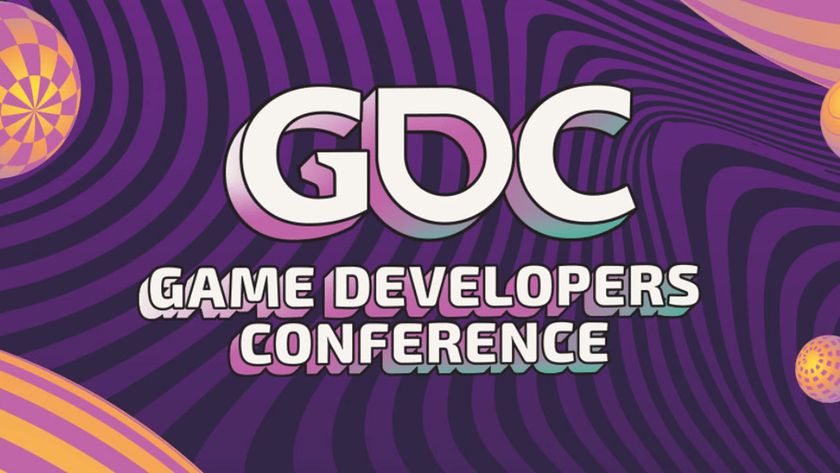
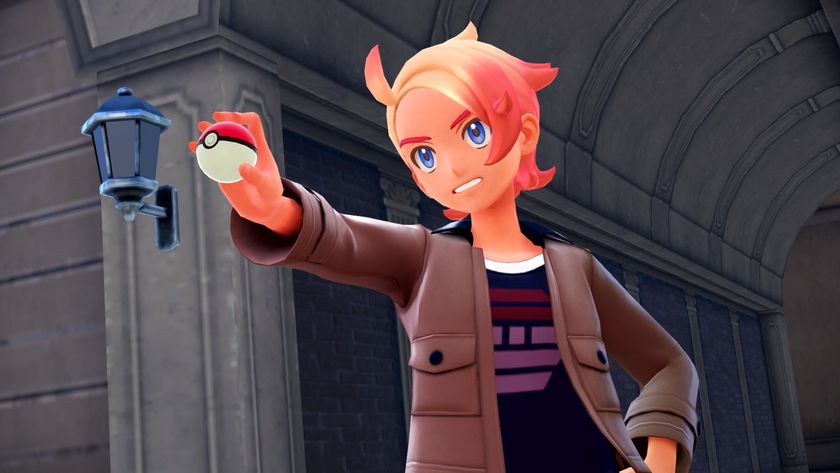
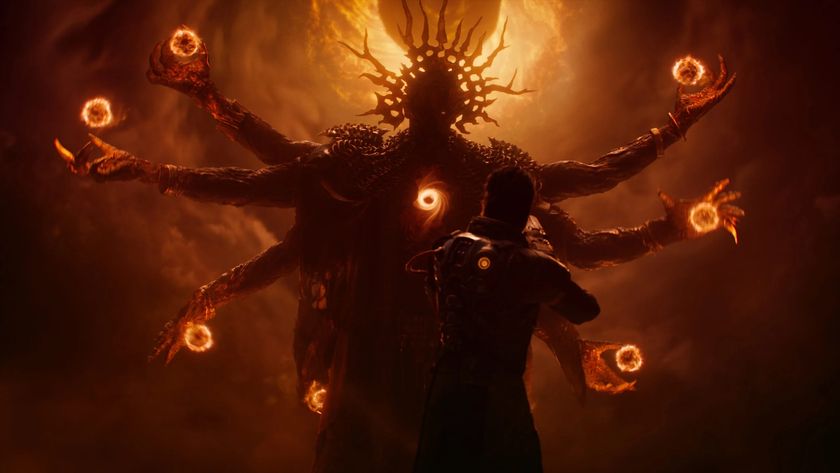
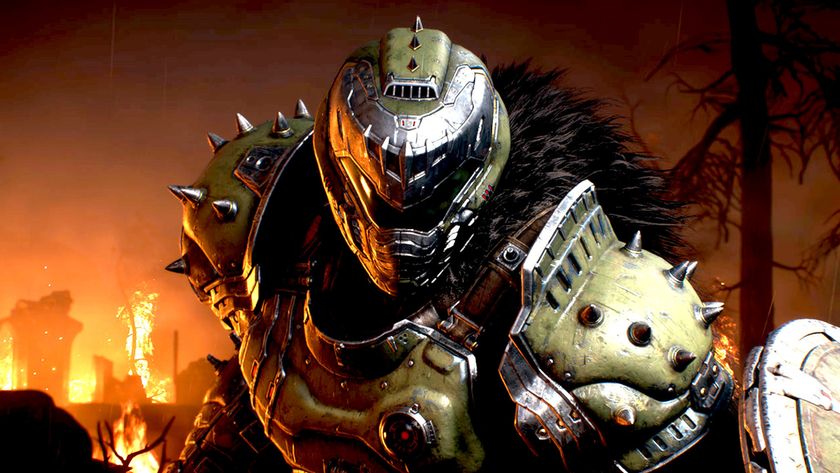
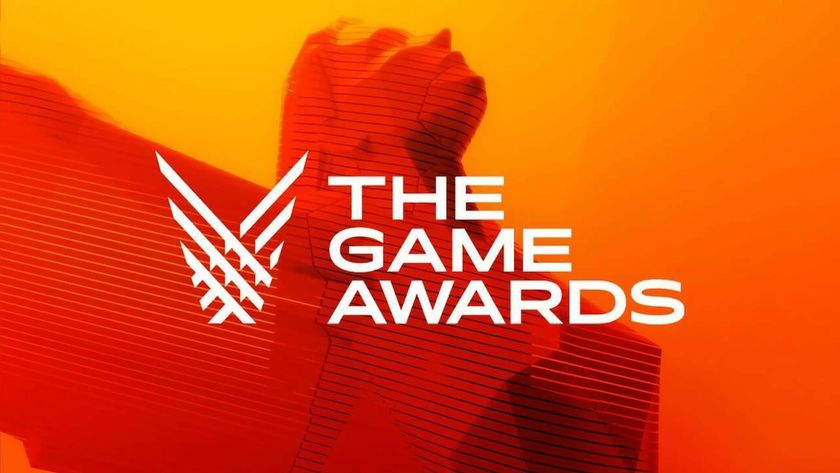








When is the Game Developers Conference 2025 and why is it so interesting?

Everything announced at Pokemon Presents 2025

